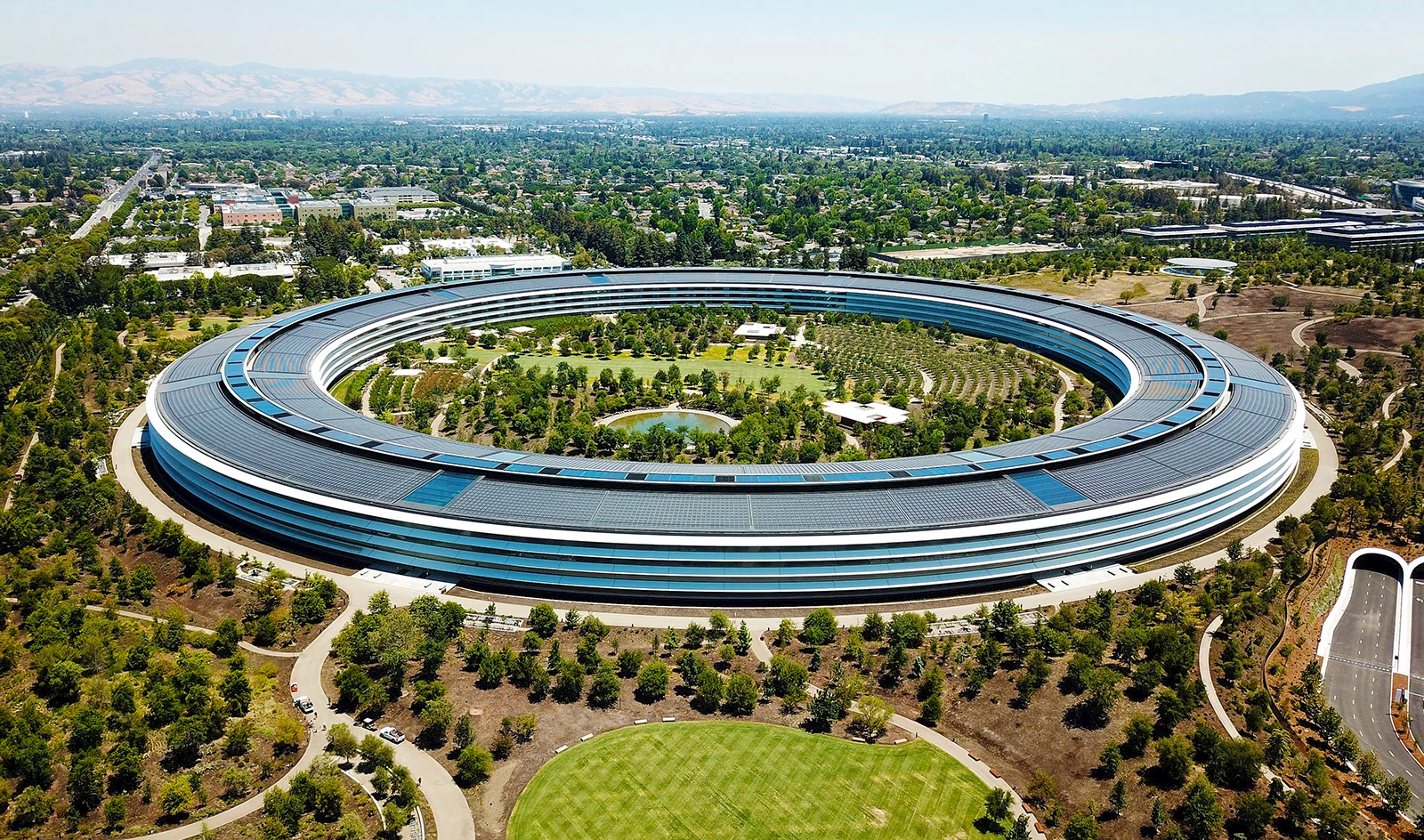Apple and Qualcomm strike a deal

Apple Park, Cupertino. © iStock.
On the eve of a jury trial in San Diego, Qualcomm and Apple unexpectedly agreed to end their legal disputes over patent royalties. Apple had accused Qualcomm of extortion and in response, Qualcomm sued Apple for patent infringement in courts worldwide. The agreement puts an end to all litigation between the two companies, which also signed a six-year license agreement, including a two-year extension option, as well as a multi-year microchip procurement agreement. Shares of Qualcomm have soared by more than 23% following the news, while those of Apple have remained stable. According to Nikkei, Apple will equip its 2020 generation of phones with Qualcomm chips, including 5G modems that the Cupertino-based company was lacking.
The casualty in this development appears to be Intel: in the hours following the announcement, it said it was temporarily pulling out of the 5G modem market for smartphones. This was a market for which it was not yet ready to produce a chip, unlike Qualcomm. Apple’s underlying reason for the deal with Qualcomm seems to be Intel’s inability to provide it with 5G modems in the near future. And, to put an end to its reliance on a monopoly supplier, Apple has put together an in-house team of more than 1,000 engineers dedicated to producing on a modem chip, but this probably won’t materialize for several more years. Intel isn’t having much luck in the mobile market, considering that it abandoned SoCs Atom in 2016, leaving the field wide open to Qualcomm’s Snapdragon.
⇨ Ars Technica, “Apple and Qualcomm settle patent fight after one day in court.”
⇨ Nikkei Asian Review, “Apple and Qualcomm settle dispute, paving way for 5G iPhone.”
⇨ Axios, “Intel to quit 5G modem effort after Apple reaches deal with Qualcomm.”
